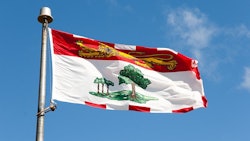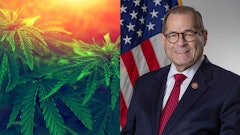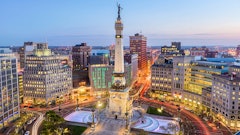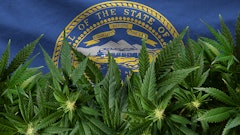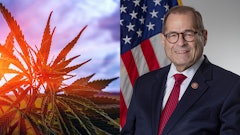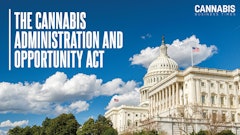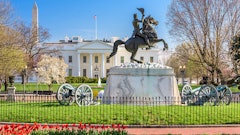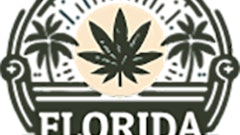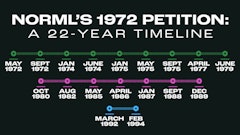Dennis Peron, “the father of the medical marijuana movement,” died Jan. 27 at the Veterans Administration Health Center in San Francisco. He was 72.

Read our 2016 profile of Peron here.
In the 1980s and early 1990s, Peron was a prominent figure in San Francisco’s counterculture scene. He organized “smoke-ins” and worked diligently to corral public support for medical marijuana. As the AIDS epidemic worsened in San Francisco, Peron actively connected patients to marijuana.
“He was a courageous, courageous individual, who was taking care of seriously ill patients in San Francisco for a long time before it was legal,” NORML executive director Keith Stroup tells Cannabis Business Times. “He had an enormous impact on the medical marijuana movement in this country, and, as a result of course, we’ve since moved on in many states beyond medical use to full legalization. We certainly wouldn’t be where we are, but for the courageous work of Dennis Peron.”
After first getting in touch with cannabis during the Vietnam War, Peron returned to the U.S. with two pounds of the plant. From there, as he recalls in his 2012 book, Memoirs of Dennis Peron, he confronted his calling and began a life of engaged civic activism.
Peron’s fingerprints can be seen on legislative bills throughout the U.S. His work helped change attitudes about marijuana in California, and that foundation can be seen in lively political debates ever since.
“For one thing, Dennis obviously was not motivated by greed. In fact, quite the contrary,” Stroup said. “He was a guy who lived a fairly modest lifestyle. He sold a lot of marijuana, but he did it at great risk of himself and primarily to help people, at least for a long time, in the HIV-positive community in San Francisco. The legacy he leaves is recognizing there’s more to legalizing marijuana than simply the Green Rush. And even though in many parts of the country now we’ve begun to move beyond medical marijuana, keep in mind that in no state to date have we been able to move from prohibition to legalization without first achieving medical marijuana. It seems to play a very positive political role in people’s minds. Once they see up-close that medical marijuana is for real, that it really does provide relief to seriously ill and dying patients, it’s impossible to continue to think of it as simply an evil substance. … I think Dennis is someone we will be in debt to for a long time.”
Peron notably opposed Proposition 64, the 2016 California voter initiative that fully legalized adult-use marijuana in the state. He saw the measure as a step toward increased corporate control over the cultivation and distribution of cannabis in California.
And as California voters turned their attention toward a the biggest legal cannabis market in the world, Peron maintained an ardent stance on the fundamental health benefits of the plant.
“The passing of 215 lit a fuse around the world,” Peron told us in 2016. “It changed everything. They can’t turn back the clock now.”
Update: We received comments from author Mel Frank, who first met Peron "at his organic veggie restaurant, Island, in the Castro area of San Francisco in 1976 or 1977."
"Dennis was a sweet and gentle guy, but passionate about cannabis and its medicinal and recreational benefits, and that's how he lived his life," Frank said. "If it wasn't for his getting Proposition 215 before the California voters, we could very well still be at a starting point for legalization."
Update: We received comments from the director of California's Berkeley Patients Group, Etienne Fontan, who also knew Peron personally and described him as larger than life, smart, savvy and able to speak with anyone easily.
"Dennis Peron was the founder of this entire industry; he sparked the joint smelled 'round the world for medical cannabis, literally and figuratively," Fontan said. "He and Brownie Mary recognized suffering in their communities and began a movement to help those who desperately needed this medicine. He truly changed the world for the better."
Peron coined the saying "all cannabis use is medicinal," Fontan recalled, adding that Peron was proven correct with the discovery of the endocannabinoid system.
"His lasting impact is the end of prohibition and the casting of a new light on an amazing plant that heals all," Fontan said.
Peron was the leader of the Northern California cannabis activist movement, Fontan added.
"He hosted CA NORML meetings monthly and could rally a crowd on a moment's notice. He and his crew set the standards for activism and compassion that everyone in our movement absorbed and carried forth."
One of Fontan's favorite memories of Peron, he said, was Fontan's first rally in 1993. Fontan had reached out to numerous speakers, and Peron agreed to speak when everyone else declined.
"I was awestruck; he cared enough to show up on a Saturday afternoon and share his truth," Fontan said. "From 1993-94, he helped me find my own voice as I organized rallies across 47 states."
"If you know medical or recreational cannabis anywhere in our country, then you should know, and burn one for, the father of medical marijuana, Dennis Peron," Fontan added. "Legends never die and his legacy will never be forgotten."
Photo: CBT Archive










